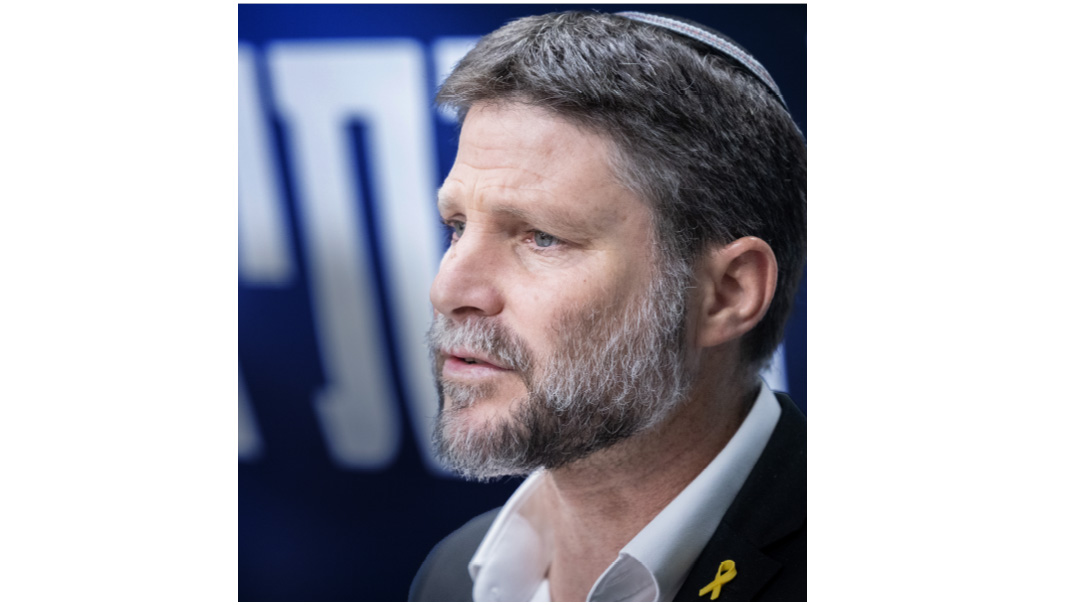Selach Lanu: Cleansed

Repairing a relationship is grueling — but there's magic in forgiveness

Forgiveness. Amnesty. Reconciliation. Some of us spend years, or even a lifetime, in pursuit of this elusive goal, whether in summoning our ability to forgive someone who caused us pain, or in extracting forgiveness from another party.
And yet it’s the subject of the sixth brachah in every weekday Shemoneh Esreh, as the Shulchan Aruch teaches, “Why is it fitting for [the brachah of] forgiveness to follow that of teshuvah [Hashiveinu]? Because when we do teshuvah, Hashem forgives… first we must do teshuvah, and then He forgives. Therefore, the brachah of Hashiveinu precedes the brachah of Selach Lanu” (Orach Chaim: 115).
Teshuvah inspires forgiveness. The progression of teshuvah to mechilah (forgiveness) seems so obvious, almost intrinsic. Why separate them in two brachos? Why not fuse teshuvah with selichah in a linear, continuous brachah?
Rav Chaim Friedlander explains that the brachah of Selach Lanu isn’t simply a direct outgrowth of the previous brachah. Rather it’s the fulfillment of Rabbeinu Yonah’s 15th principle of teshuvah: “The 15th [principle], tefillah, a person should daven to Hashem and beseech Him for mercy to atone for all his sins…” (Shaarei Teshuvah, 1:41-42).
It seems that this brachah is doing double duty; it’s both a generic request for forgiveness and an integral step in the teshuvah process.
Types of Sin
The word cheit — sin — became a broad moniker to describe all our spiritual missteps. However, it refers to a specific type of sin. Cheit indicates lack, missing the mark, and in general it speaks of one who sinned without deliberate intent. Rashi uses the word to describe a person who cast a rock, but missed his intended target (Bereishis 31:39). In the case of the rock thrower, if he would have invested more concentration and effort, he would have succeeded in meeting his objective.
So, too, with cheit; although it reflects an unintentional sin, if we’d devoted more of ourselves to our spiritual endeavors, if we’d taken the time to ensure precision, we wouldn’t have missed the mark.
Pesha is a far more serious type of infraction. It indicates willful sinning, and refers to a person who knew precisely what he was doing and chose nonetheless to proceed. Here there’s no question of missing the mark, of lacking the requisite investment in spiritual realms; a poshe’a’s intention is to rebel against his Creator and his behavior is deliberate, premeditated.
Levels of Forgiveness
What’s the definition of selichah? Is it synonymous with mechilah, or do they reflect different shades of amnesty?
“Selach na la’avon ha’am hazeh — forgive the sin of this nation,” begs Moshe Rabbeinu (Bamidbar 14:19). The Malbim explains “selach” as obliterating the sin from reality, as if it never existed.
As if it never existed? When we contemplate something deeply painful, insulting, or damaging that was done to us, perhaps even intentionally, what are the outer limits of our forgiveness? If we feel particularly magnanimous, we’ll accept an apology, but the sour taste of our experience will likely leave us vigilant in all future interactions with the offender. Removing the offense entirely, an act of cut and paste, seems unrealistic, almost naive on our part.
And yet, this is what we request of Hashem in Selach Lanu. We ask Hashem to expunge our cheit, and in doing so we invoke our relationship with Him as father: Selach lanu Avinu, ki chatanu.
A loving father frequently overlooks his son’s misdeeds. And when he must pay heed to his son’s misbehavior, he utilizes any possible explanation to excuse or diminish the severity of his son’s wrongdoing. If the son misbehaved intentionally, his father will nonetheless find a way to spin the story in a gentler, less abrasive way by explaining why his son’s pesha’im were chata’im: “He didn’t understand the severity of his actions… he wasn’t behaving with a clear head… he wasn’t aware of the consequences….”
Mechilah comes from the word “chalal,” a void. Rav Chaim Friedlander depicts mechilah as the process of cleaning a pipe packed with dirt; it’s challenging to scour every last bit of grime, so we aim for adequately, but not perfectly, clean. Thus mechilah is a lesser form of forgiveness; the sin, though pardoned, hasn’t been entirely eradicated.
We say, “Mechal lanu Malkeinu, ki pashanu.” When we ask for mechilah, we turn to Hashem as a servant who has committed a pesha against the king. In the relationship between subject and king, cheit, an accidental sin, bears the gravity of pesha, intentional sin. The king attributes to cheit the gravity of pesha because every infraction committed in the king’s presence manifests as rebellion against his kingship. If we’d maintained a constant awareness of the king’s presence, we would have been vigilant even against accidental sins. The very fact that I sinned indicates a lapse in my identity as a loyal servant. Therefore, for a king, a cheit can be considered a pesha. And mechilah will cleanse, but not eradicate, its effects.
Both as a loyal son requesting his father’s clemency to erase all misdeeds, and as a loyal subject beseeching the king’s mercy to cleanse him from sin, the brachah of Selach Lanu is our bid for Hashem’s absolution.
Opportunity Knocks
How seriously do we pursue selichah and mechilah from Hashem? Despite invoking it daily in our Shemoneh Esreh, do we really feel it’s an imperative?
Imagine how selichah and mechilah would present in another scenario, in a situation that’s very close to our hearts… our physical appearance. What if there were a concept of selichah, obliteration of wrongdoing and its effects, that applied to mistakes we made by overeating, by not regularly applying sunscreen and moisturizer, or in forgetting to properly care for our teeth? Imagine if by appealing to Hashem for clemency, He’d instantaneously wipe away the wrinkles, dissolve the extra pounds, strengthen our gums, and beautify our teeth. Who among us wouldn’t avail ourselves of this alchemical miracle?
Even if the improvement were on a level of mechilah, where our physical imperfections weren’t entirely obliterated, but instead cleansed, we’d be fools to ignore such an opportunity!
How important are selichah and mechilah to us in the spiritual realm?
The Beis HaElokim of the Mabit describes the depreciatory effects of sin: “For the sinner has faltered in two ways. He harmed himself, for Hashem will punish him, but worse, he angered his Creator in transgressing His commandments.”
Sins are metamtem, they soil us and create spiritual blockages that deter us from pursuing the desires of our neshamah, the desires of Hashem. When we sin, we thwart our own best interests by muddying the neshamah and silencing its voice. That is one way to understand how “sin begets sin.” This is the outgrowth of timtum, this is how we harm ourselves.
But our aveiros have a more insidious outcome: They damage the relationship we have with Hashem. And relationship repair is grueling work.
But Hashem has provided a remedy to cleanse us from timtum and repair the relationship. “Selach lanu Avinu ki chatanu, mechal lanu Malkeinu ki pashanu.” This 15th step in Rabbeinu Yonah’s teshuvah process is available to us every day, three times a day.
Let’s avail ourselves of the magic inherent in true selichah and mechilah and achieve true forgiveness.
Mrs. Elana Moskowitz has been teaching in seminaries for over 20 years.
(Originally featured in Family First, Issue 822)
Oops! We could not locate your form.




